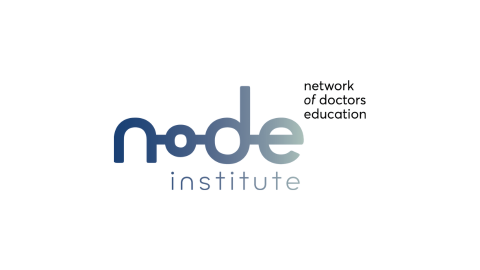An article by: Sissi Lygnou, CEO, AFEA - Martha Kornarou, Senior Project Manager, AFEA - Elena Fifi, Digital Marketing Specialist, AFEA, The NoDE Institute, Greece published in the "The PCO - June 2023 by IAPCO" issue
In today's rapidly evolving digital landscape, Professional Congress Organizers (PCOs) face unique opportunities for expansion and growth alongside corresponding challenges. As technology has revolutionized how events are organized, managed, and experienced, PCOs are called to embrace digital transformation and develop new capabilities to remain competitive.
Undoubtedly, digital technology has greatly enhanced event management. By utilizing sophisticated event management software, PCOs can streamline processes, automate registration and ticketing, manage attendees' data, and track event analytics. Event management software facilitates efficient collaboration among planners, improves teamwork, and reduces administrative burdens, leading to more effective resource allocation.
New technology has also enabled the organization of virtual and hybrid events, offering global reach, convenience, and immersive experiences through the use of augmented reality (AR) and virtual reality (VR). PCOs can now organize conferences, workshops, and seminars in both physical and virtual environments, reaching global audiences and boosting attendance. At the same time, live stream data offers valuable insights, helping them identify popular sessions and adapt accordingly.
A primary objective of PCOs is to deliver personalized experiences with expanded attendee engagement and satisfaction, increasing the likelihood of recurring participation. By leveraging data analytics and AI-powered algorithms, attendee preferences and behaviors may now be interpreted to tailor content, sessions, and networking opportunities. Digital platforms also provide PCOs with powerful marketing and promotional tools: through social media, email campaigns, and targeted advertising, they can effectively reach their target audience and generate buzz around events. Other digital marketing strategies, such as search engine optimization (SEO), content marketing, and even influencer partnerships, can significantly raise event visibility and attract wider audiences.
Indeed, by strategic use of social media, in particular, play a catalytic role in aiding event promotion, attendee engagement, and community building. Through their strategic use, PCOs can reach a broader audience and interact effectively with attendees, sharing updates, photos, and event-related information. Likewise, event apps can help elevate the attendee experience with comprehensive event guides, schedules, speaker info, and networking features, whilst offering useful feedback and information on attendee behavior.
Nowadays, digital technology provides PCOs with access to vast amounts of data, allowing them to proceed to data-driven decision-making, after gaining valuable insights from attendee feedback, behavior patterns, and post-event surveys. By analyzing this data, PCOs optimize events, identify trends, and make strategic choices to improve event success.
Alongside these offerings, PCOs also need to develop certain capabilities so as to compete effectively in the rapidly-evolving digital economy.
To begin with, they must cultivate a solid understanding of these digital tools through continuous learning and upskilling, which are crucial to staying updated with the latest trends.
Acquiring proficiency in data analytics is also essential, as it enables PCOs to extract actionable insights, refine event planning and management, and make informed decisions based on attendee preferences and behavior.
To stay ahead of the competition, PCOs must ensure that they remain adaptable and agile in embracing new technologies and implementing innovative strategies. They need to actively seek partnerships and collaborations within the digital ecosystem, focusing on building networks that will help them unlock new opportunities and enhance the organization's visibility and credibility.
There is no doubt that AI will transform professional congress organization in the future, by providing personalized experiences, predictive analytics, and seamless integration of virtual and physical elements, resulting in more engaging, efficient, and inclusive congresses. To make the best of these valuable technological offerings, it is imperative that PCOs must not lose sight of the continuing importance of customer-centricity. Prioritizing attendee satisfaction and understanding their needs and expectations will enable them to remain focused on delivering personalized experiences and improving event quality, whilst building strong relationships with their audience.




